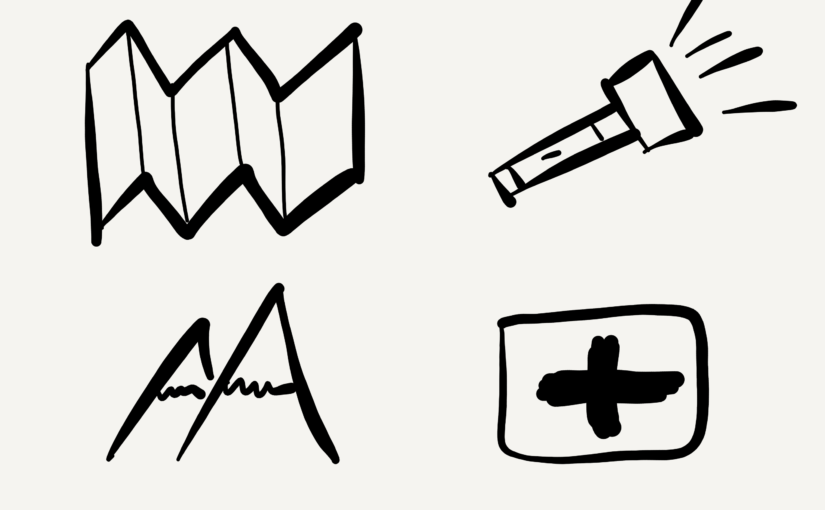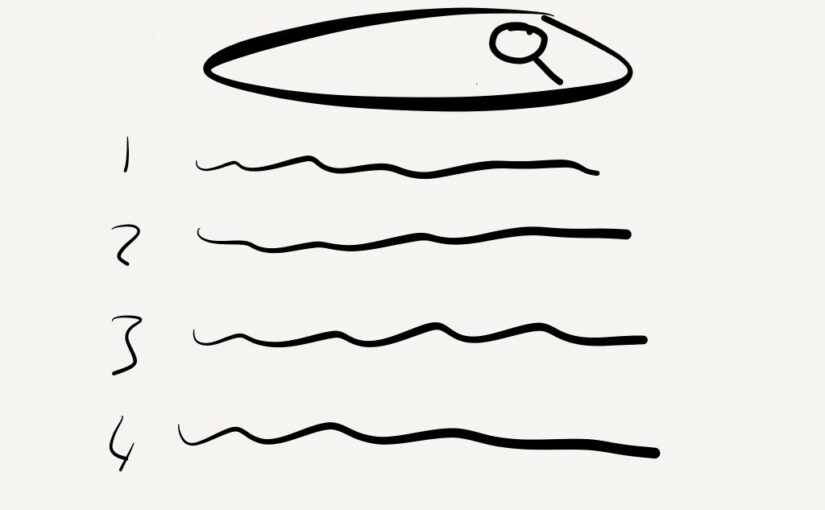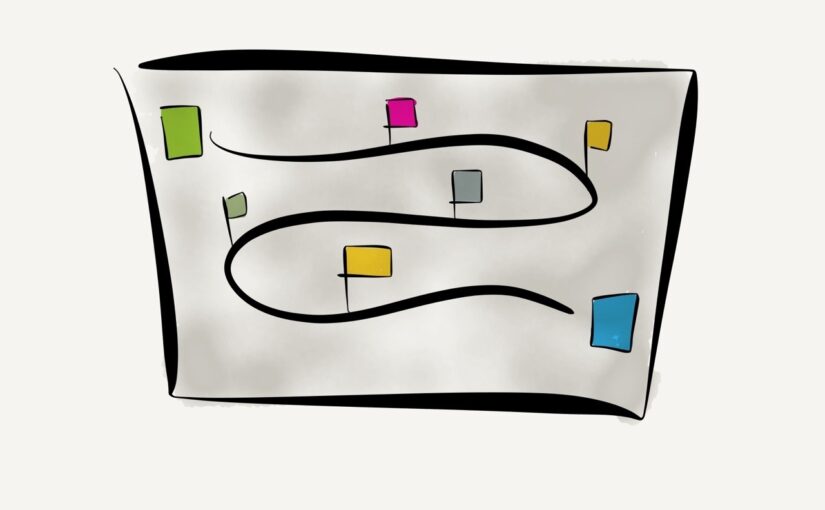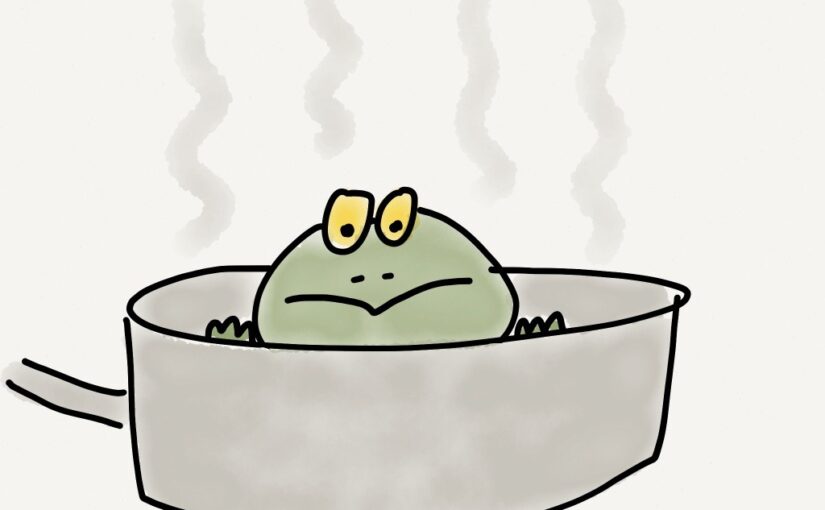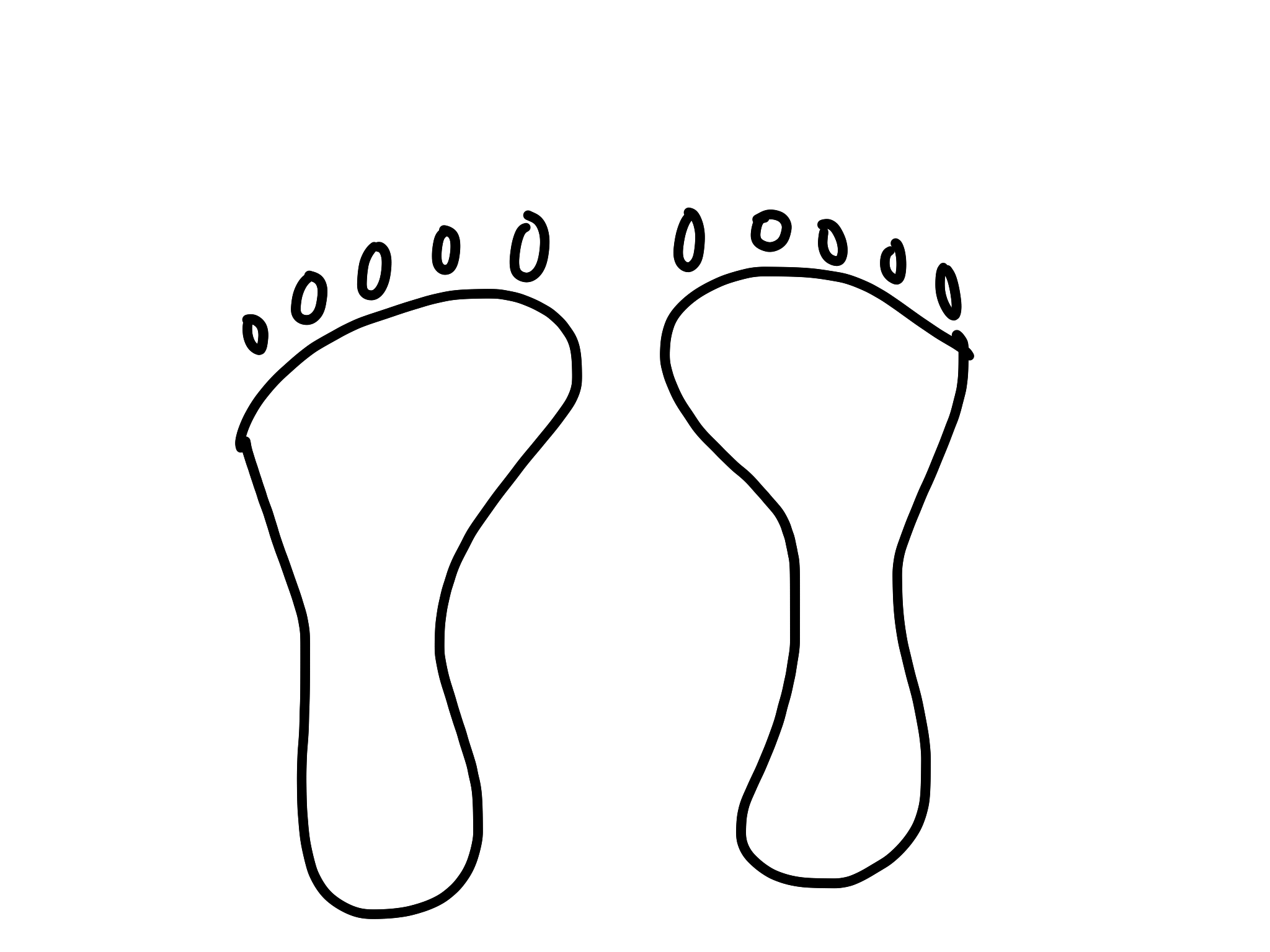Outdoors kit that I use regularly and recommend to others 👌
Continue reading Kit tipsCategory: Popular
What NOT to work on
My friend was stressed. He was juggling lots of different projects. Not making as much progress as he wanted. Not clear about the relative priorities. And considering taking on even more projects.
It’s a good problem to have, opportunity. But there are only so many hours in the day.
Overfilling those hours does not end well (context switching overhead or burnout).
Letting someone else (e.g. the Panic Monster) decide your priorities also does not end well.

Bye bye Facebook
I deleted my Facebook account three months ago.
I’m very glad I did. Here’s why.
It started badly…
Back in 2007 I was living overseas. Facebook was a great way of keeping in touch with friends and family. A useful platform that was free 👍. And of course the poking; lots of poking.
Continue reading Bye bye FacebookGet the map out of your bag
I was doing an online navigation course aimed at those racing mountain marathons but the parallels with business and personal life were clear.
Continue reading Get the map out of your bag“Lots of people keep their map in their bag and only get it out after they are lost. Elites always keep their map to hand.”
WOW2030
We all know the world of work is changing; but how exactly and what can we really do about it?
I attended the third annual World of Work conference yesterday. Here are my notes:
- People (esp GenZ) increasingly want their work to have a positive impact (not just £££)
Learning to fall
Wandering along the river at the weekend we saw a small boy take a spill on his bike.
It was enough of a fall to draw a sharp intake of breath from both my wife and me but no real damage was done.
The boy instinctively dusted off his hands and winced at the bits of gravel embedded in the palms of his hands.
His Dad, walking behind us shouted, “That’s alright. Just dust yourself off. It won’t hurt as much if you ride on the grass.”
~~~~~
My mum insisted my brother and I learn how to fall when we were little, “Tuck your elbow in and land on your hip and shoulder”. Good advice for adventurous boys.
~~~~~
Over the years, I’ve introduced a handful of people to rock climbing; encouraging them as they take their first nervous steps up from the safety of the ground into the unknown.
The pattern of a first climb is pretty common: grip tightly to the holds, head up using mostly arm not leg strength, get to the top, clutch onto the largest object at the top, look down nervously, eventually release death-grip on the wall to be lowered down, grip the rope tightly on descent, kiss the floor with relief/sense of achievement, stare with wonder at forearms which appear to be pumped and burning, realise that you arms are now too tired to climb again for a long time.

Until you reach the top of the climb and release your weight onto the rope, you haven’t tested the system. You have no real trust in it. No experience of how it feels to sit in the harness, deliberately or otherwise, until you are in an exposed position.
So why not learn to fall when the stakes aren’t as high?
That’s how I teach. On terra firma I tie the person into their harness, show them the basics of my belay device, take up the slack in the rope, then I just fall down into my harness next to them. “I trust the system”, I’m saying. “You can too.”
~~~~~
I’ve laboured the analogy; forgive me.
My point is that being comfortable and familiar with falling allows us to ride and climb better. We’ve reduced the cost of failure.
This doesn’t just apply to the great outdoors. Learning to fall in our personal and work lives gives us the confidence to push our experimentation & creativity further.
So why isn’t learning to fall an integral part of every new undertaking?
The law of two feet
If at any time you find yourself in any situation where you are neither learning nor contributing – use your two feet and move to some place more to your liking.

The idea comes from the “Open Space” approach to meetings pioneered by Harrison Owen in the 80s. Informed by the thinking on self-organising systems and teams, Open Space meetings have no formal agendas and principles such as “Whoever comes is the right people” and “Whatever happens is the only thing that could have“.
Fascinating stuff. Many of the ideas are used in unconferences today. Do check it out in Owen’s own words (Warning: no white space or pictures here).
The law is stated explicitly to meeting attendees at the beginning of a session. How does it work?
The law simply acknowledges what people are going to do anyhow. If there is any substantive contribution derived from either principles or law, it is merely to eliminate all the guilt. After all, people are going to exercise the law of two feet, mentally if not physically, but now they do not have to feel badly about it.
How grown up and insightful.
The law places the responsibility for maximising learning and contribution with us, the individual. Funny how we seem to need permission to do this. Social conditioning perhaps?
…such a place might be another group, or even outside into the sunshine. No matter what, don’t sit there feeling miserable. The law, as stated, may sound like rank hedonism, but even hedonism has its place, reminding us that unhappy people are unlikely to be productive people.
So the next time you find yourself not learning or contributing in a meeting (or elsewhere) think about the law of two feet.
What’s the worst that could happen?
Try something new for 30 days
Think about something you’ve always wanted to add to you life and try it for the next 30 days. ~ Matt Cutts (TED video)
I really recommend the video. It’s only 3 minutes long and pretty inspiring and persuasive.
TL-DR: the usual “thought -> action -> habit -> character -> destiny” progression logic. 30 days is apparently long enough to form new habits; be they exercise, diet, a photo a day, write a novel, avoid Facebook, TV, etc.
Inspired, I thought I’d give it a go. I picked doodling. A bunch of people like Sunni Brown have been championing the learning, creativity, problem-solving and innovation benefits of doodling recently.
So I began drawing. Very simple things and shapes. The sort of thing you can scribble on a whiteboard as a visual aid. Not Turner prize material. Using a free app on the iPad with one-click publishing to a free basic Tumblr site: Dreadful daily doodles
So far so good
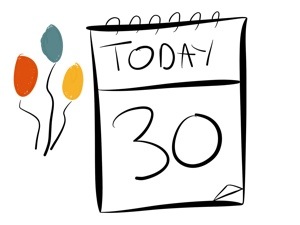 I finished the 30 days and am carrying on with my new habit as I’ve learnt loads: cats can easily look like rats, dogs are really hard, our brains override what our eyes see with preconceived ideas of what something looks like, outline and shape can imply movement much better than detail, less is more.
I finished the 30 days and am carrying on with my new habit as I’ve learnt loads: cats can easily look like rats, dogs are really hard, our brains override what our eyes see with preconceived ideas of what something looks like, outline and shape can imply movement much better than detail, less is more.
Rubber ducking
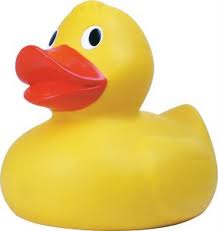 Do you have a rubber duck? You should have..
Do you have a rubber duck? You should have..
When I was a graduate trainee in IT a kindly wise owl contractor recommended a book called The Pragmatic Programmer. It’s a superb and very accessible book that helped me make sense of my learning journey at the time.
The authors suggested a technique, coined by Greg Pugh, called rubber ducking, “Place a rubber duck on your monitor and describe your problems to it. There’s something magical about stating your problems aloud that makes the solution more clear.”
“Not so great for open plan offices” you say? My boss suggested that talking to inanimate objects in public wasn’t a great advert for my sanity and offered to be my rubber duck. I would explain a problem that I was having and she would look at me and nod. Rarely would she actually have to say anything and I would, without fail, interrupt myself before finishing the explanation having worked out the solution. Magic!
At the start of the MBA, we were encouraged to keep a personal learning journal to record and make sense of our experiences. A sort of paper rubber duck. I’ve been slack and only done this roughly once a month so far.
Henley’s excellent personal development workshops always re-ignite the desire and recognition of the importance of reflection but my self-discipline has been lacking. I’m determined to make and embed changes before my time at Henley is over so am resorting to an old friend, the public promise, to keep me on track: I will add a minimum of one blog post a week for the next 12 months.
(Crap! I’ve said it out loud now. I’ll have to do it…)
I hope you don’t mind being my rubber ducks. I’d be very grateful if you could nod gently from time to time but sitting there quietly is fine too.
